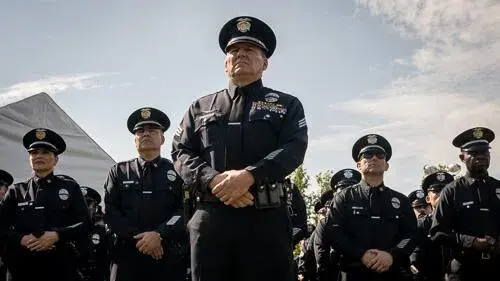Seven of the 11 Public Law 280 tribes in this study had cooperative agreements with their
local law enforcement agencies. Although such agreements ameliorate some of the problems
associated with Public Law 280, largely through expansion of resources available for law
enforcement, reservation residents are less satisfied with them than are state/county law
enforcement personnel. Most serious concerns expressed by reservation residents are impact on
tribal sovereignty and the continued application of law enforcement and criminal justice systems
that fail to respect tribal cultures and public safety priorities.
A large majority of reservation residents in the Public Law 280 tribes in this study would
support retrocession of state jurisdiction, at least if federal-BIA support were available to
establish and/or develop tribal law enforcement and criminal justice systems. For the retroceded
tribes in this study and discussed in published sources, retrocession has been a positive
1 “Non-straddler” refers to tribes whose territory lies entirely within a Public Law 280 state.
This document is a research report submitted to the U.S. Department of Justice.
This report has not
been published by the Department. Opinions or points of view expressed are those of the author(s)
and do not necessarily reflect the official position or policies of the U.S. Department of Justice.
x
experience. Public safety has been improved, and community well-being has grown due to
enhanced sovereignty and tribal creation of justice systems that match community values and
conceptions of justice. Greater community confidence in the criminal justice system has
translated into increased reporting of crime, greater cooperation with criminal investigations, and
greater compliance with community-imposed sanctions.
Recommendations based on this study are:
1) More training for police and court personnel serving Public Law 280 jurisdictions;
2)
Increased public information for tribal community members in Public Law 280 jurisdictions;
3) Enhanced communication and cultural understanding between state/county law enforcement
agencies and courts with tribal communities;
4) Make state/county law enforcement and criminal justice more accessible to tribal
communities;
5) Increase accountability of state/county law enforcement and criminal justice to tribal
communities;
6) Establish federal-BIA and state/county crime data collection systems that indicate Indian
country location;
7) More community-based policing and police responsiveness to the most serious and frequently
occurring crimes in Public Law 280 and non-Public Law 280 jurisdictions;
8) Greater funding for tribal law enforcement and courts in Public Law 280 jurisdictions;
9) Introduce incentives and support for the development of tribal-state cooperative law
enforcement agreements;
10) Enactment of federal legislation authorizing tribally initiated retrocession of Public Law 280
jurisdiction;
11) Fund further research, including additional case studies and nationally representative samples
containing more Public Law 280 and non-Public Law 280 community comparisons.

